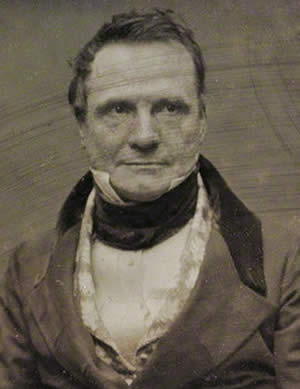Passages from the Life of a Philosopher
 Charles Babbage
Charles Babbage
In his autobiography "Passages from the Life of a Philosopher", Charles Babbage wrote a whole chapter on the topic of religion, where he identified three sources of divine knowledge:
- A priori or mystical experience
- From Revelation
- From the examination of the works of the Creator
Babbage also wrote a defense of the belief in divine miracles. Babbage advocated for the belief of divine agency, stating "we must not measure the credibility or incredibility of an event by the narrow sphere of our own experience, nor forget that there is a Divine energy which overrides what we familiarly call the laws of nature." He alluded to the limits of human experience, expressing: "all that we see in a miracle is an effect which is new to our observation, and whose cause is concealed. The cause may be beyond the sphere of our observation, and would be thus beyond the familiar sphere of nature; but this does not make the event a violation of any law of nature. The limits of man's observation lie within very narrow boundaries, and it would be arrogance to suppose that the reach of man's power is to form the limits of the natural world."
|